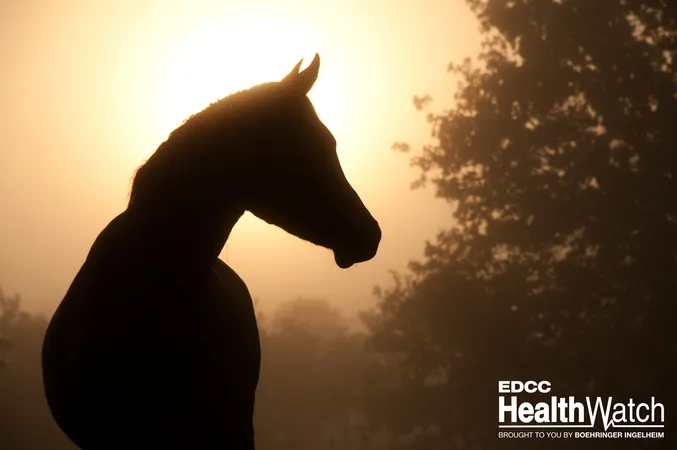
Alarming West Nile Virus Outbreak in Wisconsin: Unvaccinated Mare Tests Positive!
2024-09-17
On September 12, a concerning case emerged in Green Lake County, Wisconsin, where an unvaccinated 3-year-old Standardbred mare tested positive for the West Nile virus (WNV). The mare showed clinical symptoms starting September 7, displaying pronounced stiffness in her hind legs and an alarming reluctance to walk. Fortunately, she is currently on the mend with appropriate care.
What You Need to Know about West Nile Virus (WNV)
West Nile virus is a serious disease that is transmitted to horses primarily through the bites of infected mosquitoes. While not all infected horses exhibit noticeable clinical signs, those that do can display a variety of symptoms, including:
Flulike indications, such as lethargy and reduced appetite
Involuntary muscle twitching (fasciculation)
Increased sensitivity to touch and sound (hyperesthesia)
Altered mental states (disorientation or unresponsiveness)
Drowsiness or lack of energy
Erratic movement (propulsive walking)
Spinal issues, including weakness and coordination problems (ataxia)
It's crucial to understand that there is currently no cure for WNV, and the mortality rates in horses can be distressingly high, reaching 30-40%. But hope remains; many horses can recover with the right supportive care.
Prevention is Key!
Veterinary studies indicate that vaccination is one of the best defenses against WNV. Horses that have been vaccinated in previous years require annual booster shots. For regions with prolonged mosquito seasons, vets may recommend two boosters each year—one in spring and another in fall. Conversely, unvaccinated horses will need a two-shot vaccination series spaced over three to six weeks for optimal protection. It’s critical to note that it can take several weeks after vaccination for horses to build adequate immunity.
In addition to vaccination, horse owners should take proactive steps to minimize mosquito exposure. Here are some effective strategies:
- **Eliminate Standing Water:** Mosquitoes breed in stagnant water, so empty any containers, tires, or other items that can collect water around your property.
- **Use Mosquito Repellents:** Consider applying equine-safe insect repellents directly to your horses to deter mosquitoes.
- **Protective Gear:** In high-risk areas, using fly sheets or masks can help shield horses from mosquito bites.
- **Stable Management:** Ensure that barns and stables are well-fitted with screens and keep doors closed during peak mosquito activity hours.
As this alarming case highlights, ensuring your equine friends are safe from West Nile virus is of utmost importance. Act now—don't let your horses become the next victims! Keep them vaccinated and protected against this deadly threat!

 Brasil (PT)
Brasil (PT)
 Canada (EN)
Canada (EN)
 Chile (ES)
Chile (ES)
 España (ES)
España (ES)
 France (FR)
France (FR)
 Hong Kong (EN)
Hong Kong (EN)
 Italia (IT)
Italia (IT)
 日本 (JA)
日本 (JA)
 Magyarország (HU)
Magyarország (HU)
 Norge (NO)
Norge (NO)
 Polska (PL)
Polska (PL)
 Schweiz (DE)
Schweiz (DE)
 Singapore (EN)
Singapore (EN)
 Sverige (SV)
Sverige (SV)
 Suomi (FI)
Suomi (FI)
 Türkiye (TR)
Türkiye (TR)